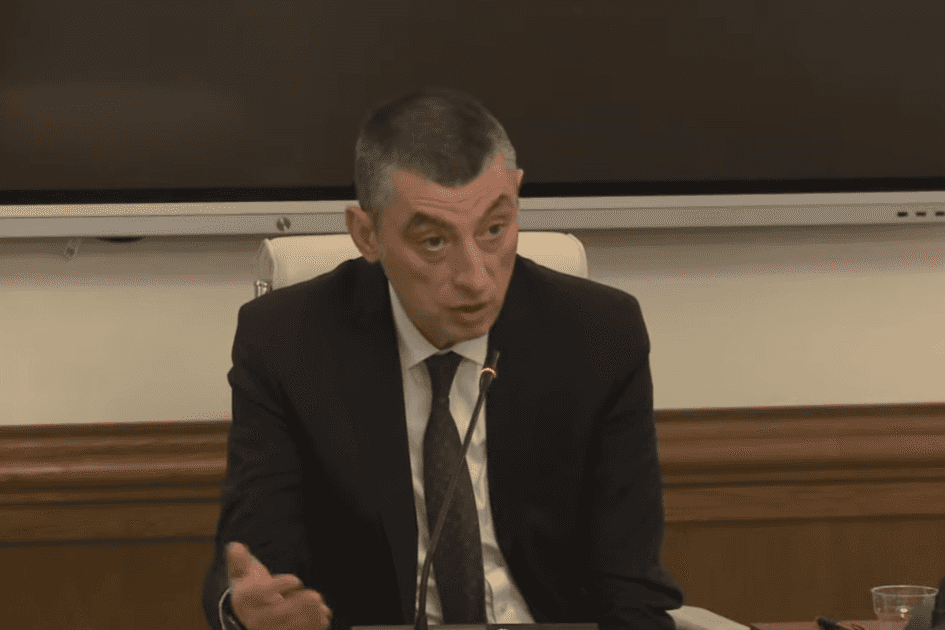
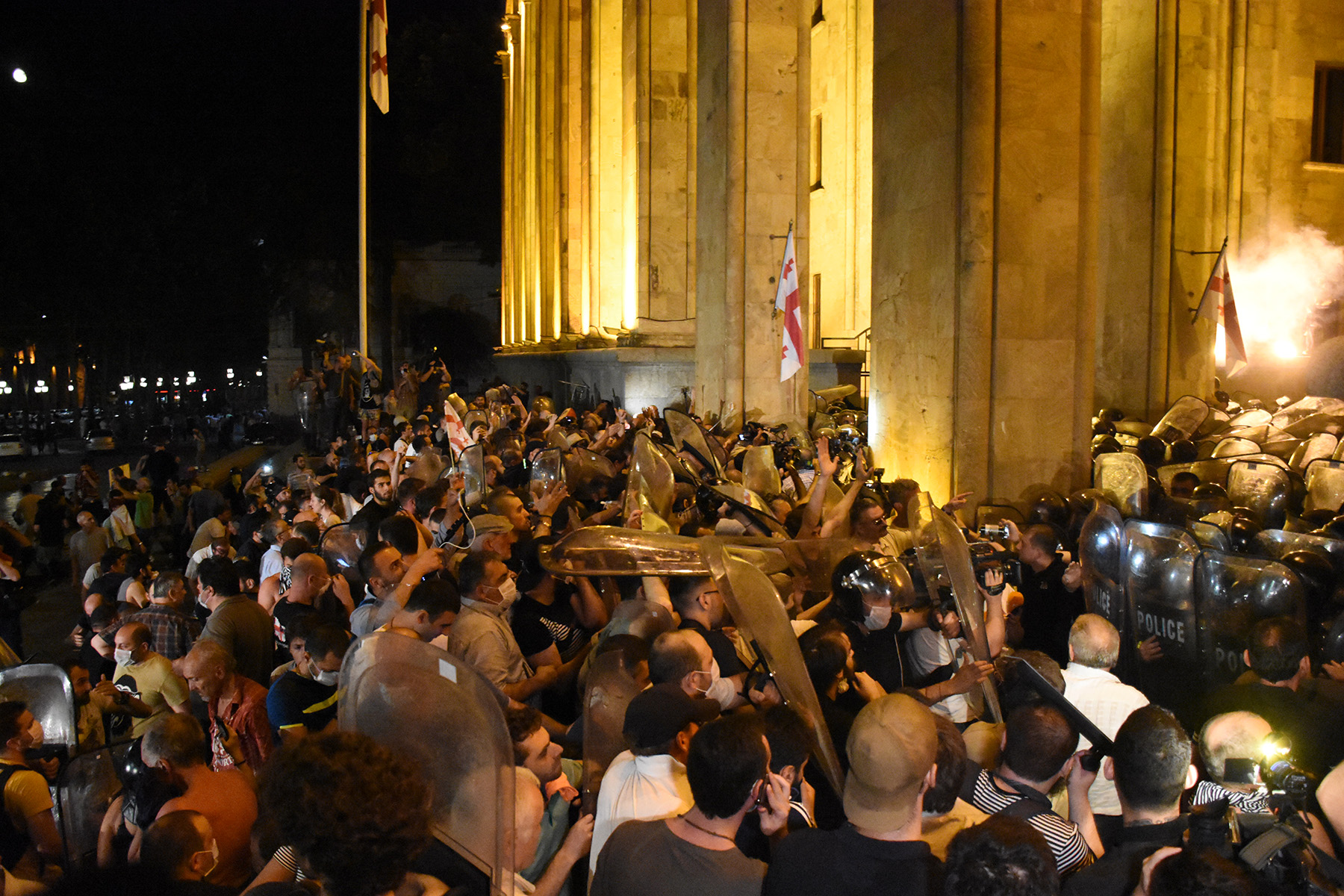
After 40 days of street protests against police brutality, the authorities charge more people over an attempt to storm the parliament building.
The Tbilisi City Court remanded five more people detained last week over ‘group violence’ in front of Parliament on 20 June into pre-trial detention.
These latest arrests put the number of those placed in pre-trial detention at 18 and include prominent members of civil and political opposition to the ruling Georgian Dream party.
The mass protest on 20 June followed Russian MP Sergey Gavrilov’s address from the seat of the speaker of the Georgian Parliament, something critics said was inappropriate and offensive given Russia’s role in the conflicts in Abkhazia and South Ossetia.
Later that night, the protest turned violent and police deployed rubber bullets and a water cannon, resulting in at least 240 people being hospitalised, including 80 police officers.
The dispersal of the crowd triggered an ongoing daily protest demanding the resignation of Interior Minister Giorgi Gakharia. The authorities have said they were looking into allegations of abuse of power by riot police but have also launched an investigation into alleged ‘group violence’ by some of the protesters.
The Prosecutor’s Office has now charged 19 people for their actions during the clashes.
Critics have said that the Prosecutor’s Office was quick to go after protesters allegedly involved in clashes with police, while, so far only two riot police officers have had charges brought against them.
One of the two officers has since been released on bail.
[Read more on OC Media: 5 violations by police during the Tbilisi clash]
On 28 July, the South Caucasus Director of Human Rights Watch, Giorgi Gogia, criticised the Georgian courts for accepting ‘blanket reasons’ like the risk of fleeing from justice or connections outside the country to remand detainees in pre-trial detention.
Cases should be considered individually and ‘pre-trial detention should be a measure of last resort’, Gogia insisted.
‘Vendetta’ against father seeking justice
Among those remanded in pre-trial detention on 27 July was Moris Machalikashvili, a nephew of Malkhaz Machalikashvili, who has been demanding a ‘proper investigation’ into his son’s fatal shooting for almost 20 months.
Georgian security forces shot Malkhaz’s son, 19-year-old Temirlan Machalikashvili, during an anti-terror sweep in the Pankisi Valley in November 2017.
Following the court ruling on Saturday, Temirlan’s father said that the ruling was a result of a government ‘vendetta’ against him. He said that authorities had ‘warned’ Moris by phone that he would be detained if his uncle (Malkhaz Machalikashvili) set up his tent in front of parliament again.
Malkhaz Machalikashvili, who has maintained his picket in front of the parliament since June 2018, joined and endorsed the 20 June anti-government rally that demanded the Interior Minister’s resignation.
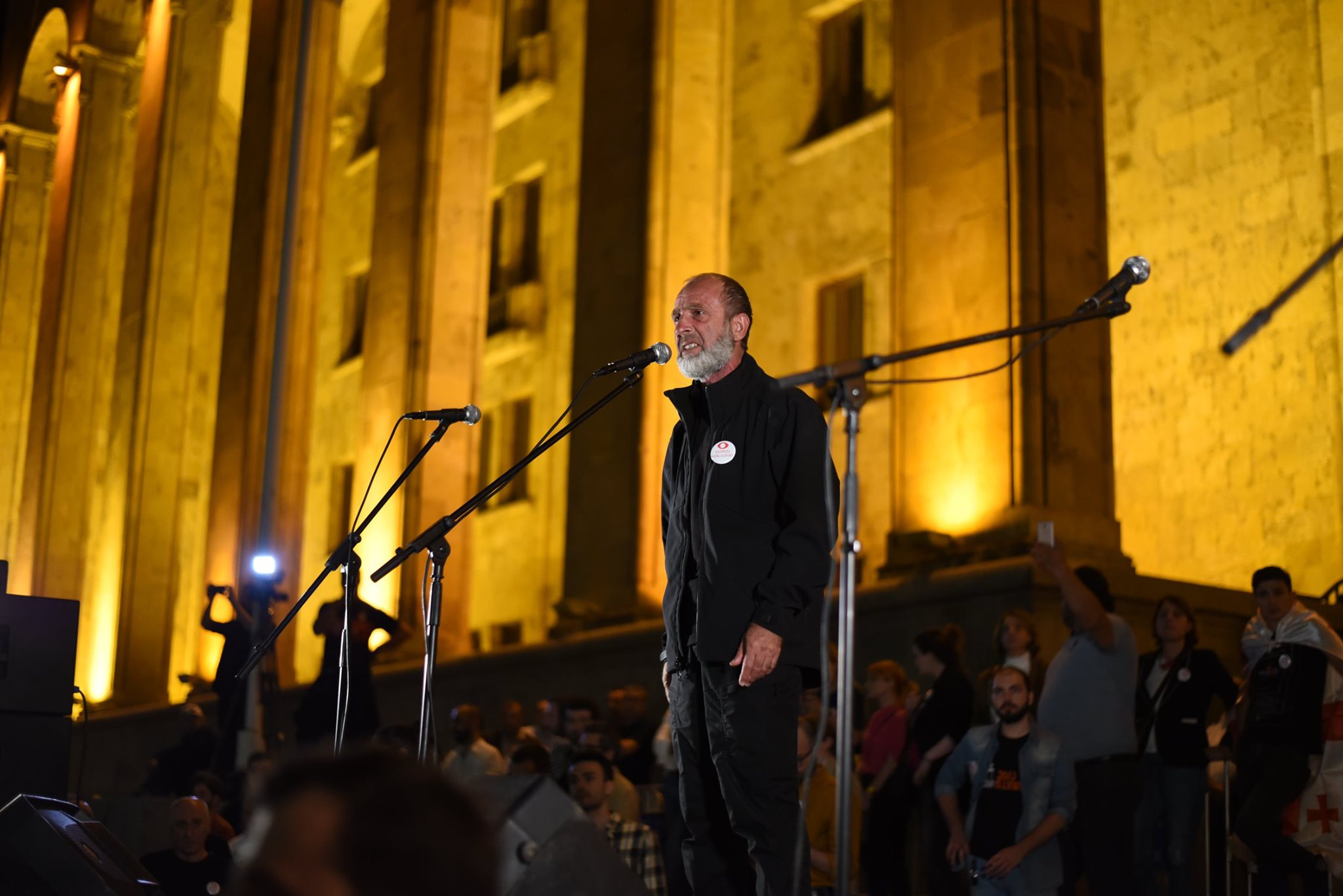
Earlier in May, the State Security Service, accused by the Machalikashvili family of killing the teenager, accused both Moris and Malkhaz of ‘plotting a terror attack’, but brought no charges against them.
Prominent Georgian zoologist remanded in custody
The arrest of Bezhan Lortkipanidze, another of the five recent detainees, and his remand into pre-trial custody has caused an outcry from his supporters in Tbilisi.
The Interior Ministry said that Lortkipanidze, who is a well-known field biologist in Georgia, was ‘particularly aggressive towards police officers, verbally and physically assaulted them, and tried to break the police cordon’.
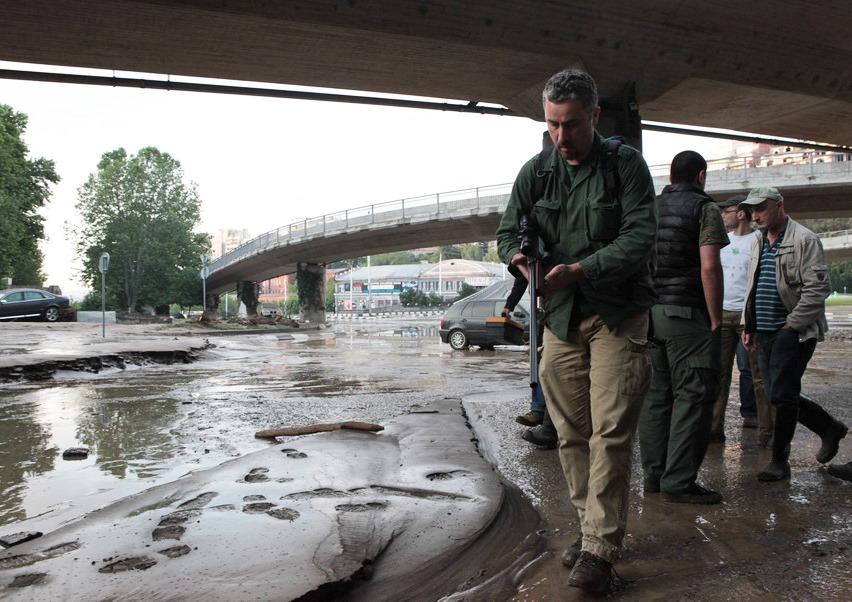
Following his detention, Lortkipanidze’s organisation, the species conservation centre Nacres, said they were suspending their work in protest.
Former official claiming TV company ownership also arrested
Irakli Okruashvili, who recently claimed to be the legitimate owner of opposition-leaning TV channel Rustavi 2 and challenged some of the investigations against officials from the former ruling party, the United National Movement, is among the detained.
Okruashvili, a former ally turned critic of ex-President Mikheil Saakashvili, served as Georgia’s Defence Minister, Interior Minister, and Prosecutor-General throughout 2004–2006.
He went into exile to France in 2007 after accusing Saakashvili of plotting to murder a political rival. He returned to Georgia after Georgian Dream ousted Saakashvili’s United National Movement from power in the 2012 elections.
Following a European Court of Human Right’s ruling on 18 July that enabled the transfer of popular opposition TV channel Rustavi 2 to businessman Kibar Khalvashi, Okruashvili claimed he was the real owner of the company.
He stated that upon returning to Georgia, he falsely testified against former senior officials, including in the case over Rustavi 2’s ownership.
In 2014, Okruashvili said that Saakashvili and his close allies took over Rustavi 2 by pressuring the founders of the channel to give up their shares. However, he recently insisted that not only he knew and witnessed this but it was, in fact, him who received 100% of the shares and that it follows that ownership of Rustavi 2 should be transferred to him.
The Prosecutor’s Office detained and charged him on 25 July for allegedly organising, leading, and participating in the violence that gripped Tbilisi a month earlier
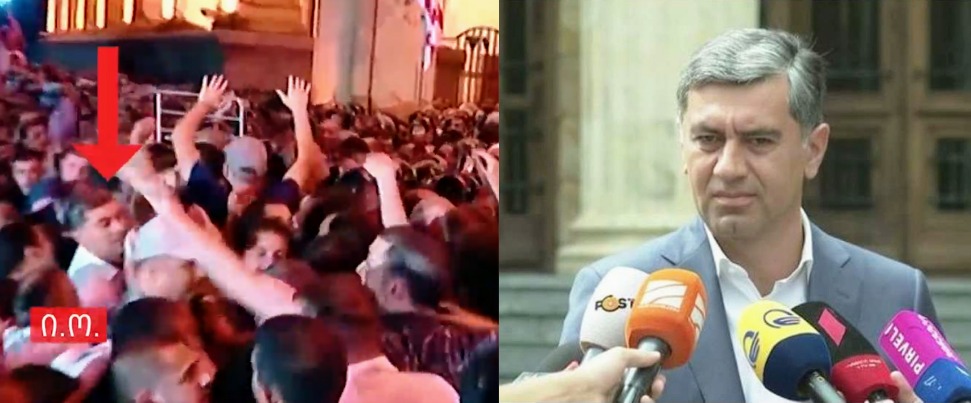
The former Georgian Defence Minister called the prosecution ‘politically motivated’ — as his previous testimony allegedly undermined the ruling party’s attempts to take control of Rustavi 2.
Okruashvili maintained that during the protests in Tbilisi, he had only tried to ‘calm the people’ that attempted to enter — or as the authorities claim, ‘storm’— the Parliament building.
The ruling party, on the other hand, insisted he had become a person of interest in the 20 June investigation before his latest controversial political statements.
The Chief Prosecutor’s Office summoned him for questioning as a witness the day after the clashes.
Okruashvili is so far the only politician that the authorities have placed in pre-trial detention over the Tbilisi protests.
The Prosecutor’s Office earlier charged UNM’s Nika Melia for inciting violence. A majority of lawmakers voted to strip Melia of his parliamentary immunity, but the Tbilisi City Court rejected a motion to remand him in pre-trial detention, granting release on bail and under the condition that he wears an ankle bracelet and does not leave the country.





